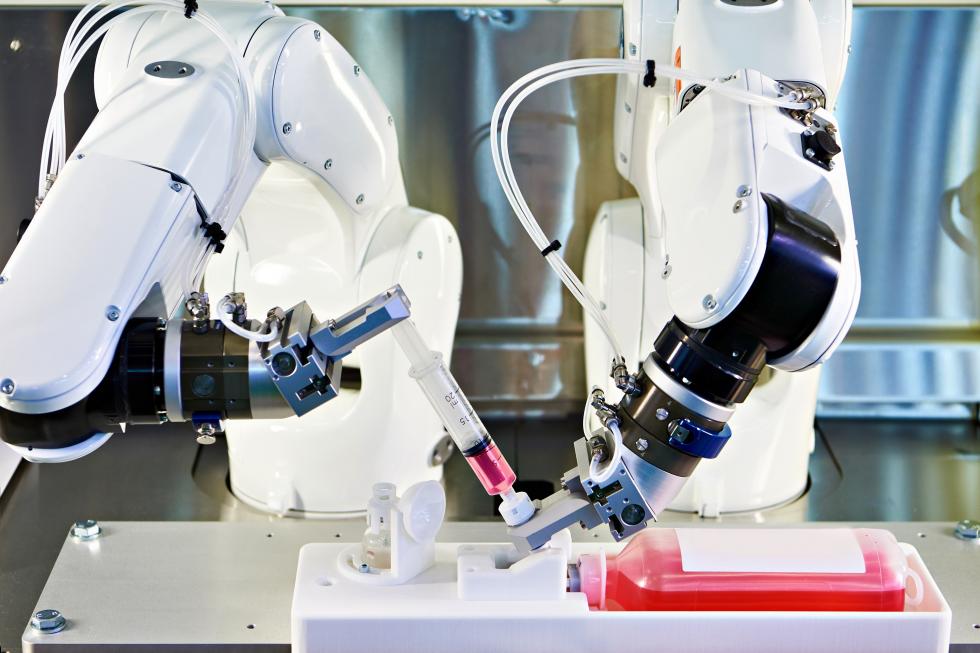

Pharmaceuticals and healthcare
MDR: Liability of the Person Responsible for Regulatory Compliance (PRRC)
As of 26 May 2021, medical device manufacturers and their authorized representatives must have a Person Responsible for Regulatory Compliance (PRRC). The PRRC assumes a key role in the control and monitoring of medical devices and in vitro diagnostics. In the following, we lay out the criteria for adjudicating the PRRC’s civil and criminal liability and how to reduce the legal risks.
The starting point for determining the civil and criminal liability is the PRRC's duty of care.
Duty of care
Swiss law obliges the PRRC to take all measures necessary, according to the state of the art, to ensure that human health is not endangered. Foremost, this is the responsibility for the quality management system for the control and monitoring of medical devices. The PRRC must ensure that the quality management system, including the system for risk management and post-market surveillance, corresponds to the state of the art and is continuously updated.
Civil law liability
The PRRC is liable for damages caused in breach of her/his legal duties of care. Irrelevant is whether the company suffers damages directly or whether third parties hold the company liable for damages that they have suffered (product liability). In both cases, the company may take recourse against the PRRC if she/he is held responsible for the damages caused through her/his conduct.
The requirements for the recourse depend on the contract between the PRRC and the manufacturer or the authorized representative.
If the PRRC is an employee, labor law governs the liability. As an employee, the PRRC is responsible for damages that she/he has caused to the employer either intentionally or negligently. In the employment contract or in a contractual addendum, the parties may waive the liability for minor or medium negligence. By limiting the liability to intent or gross negligence, the liability requires a serious violation of the most elementary duties of care, and the PRRC must have disregarded basic precautionary rules or omitted measures that should have been obvious to any reasonable person in the same situation and under the same circumstances. The conduct must appear to be utterly incomprehensible ("How could she?").
If the PRRC acts independently as an agent, liability is subject to agency law. Agency law requires that the PRRC faithfully and diligently perform the assigned tasks. However, the standards for fulfilling the duty of care under agency law are higher than under labor law, but also under agency law, the parties may contractually waive the liability for minor or medium negligence.
Criminal liability
Criminal liability for medical devices is not limited to active conduct. It also applies to inactivity in breach of a legal duty if the person, by failing to act, does not prevent the endangerment or violation of a legal right that she/ he was obliged to protect due to her/his legal position.
The PRRC is vested with the obligation of checking the products’ conformity in accordance with the quality management system "in an appropriate manner" before the product is released. The PRRC is thus obliged to ensure that only products are placed on the market that fully comply with the basic safety and performance requirements. If persons have been injured or the health of patients is endangered due to product defects, a potential criminal proceeding will examine whether the PRRC neglected her/his legal obligations. For this purpose, it must also be assessed whether the quality management system itself is up to date and allows the PRRC to carry out "appropriate" testing and monitoring.
The PRRC also assumes an important role in market surveillance. In particular, she/he must ensure that the manufacturer establishes and maintains an effective and efficient system for monitoring the medical devices placed on the market. If patients are harmed because the post-market surveillance did not meet the legal requirements, the question arises as to what extent these failures can be attributed personally to the PRRC. In this context, it must be assessed whether the PRRC has done everything possible to avert such risk.
These same imperatives apply to decisions on any corrective measures, including the recall of defective or no longer compliant medical devices, where the PRRC again plays a vital role. Here too, the question of personal liability arises if the required notification to Swissmedic or the order for a recall is not given. This holds even though the PRRC should have been aware of the necessity of this measure due to the seriousness of the defect or to the urgency to protect patients.
What is to be done?
These examples illustrate how exposed the PRRC is in performing her/his duties. Before assuming this key position in a company - whether hiring as an employee or contracting as an external consultant - the PRRC must conduct a careful due diligence. This examination, however, should extend beyond the already existing deficiencies; it should include reviewing the internal procedures laid down in the company's standard operating procedures (SOP) to establish clarity about the internal competencies and responsibilities within the company. In addition, liability should be addressed, which, of note, can be limited in a contractual addendum. Finally, this examination must cover whether and in which areas the PRRC has not only the right to issue instructions but also to understand what position she/he holds vis-à-vis the management.
Stay tuned for the latest news
Because Switzerland broke off negotiations on the framework agreement with the EU on 26 May 2021, and in return, the EU declared that Switzerland could no longer participate as an equal partner in the European single market for medical devices, some of our next publications focus on the practical consequences for the medical device industry. Please do not hesitate to contact us if you would like to discuss with us or connect with us on Linkedin.



